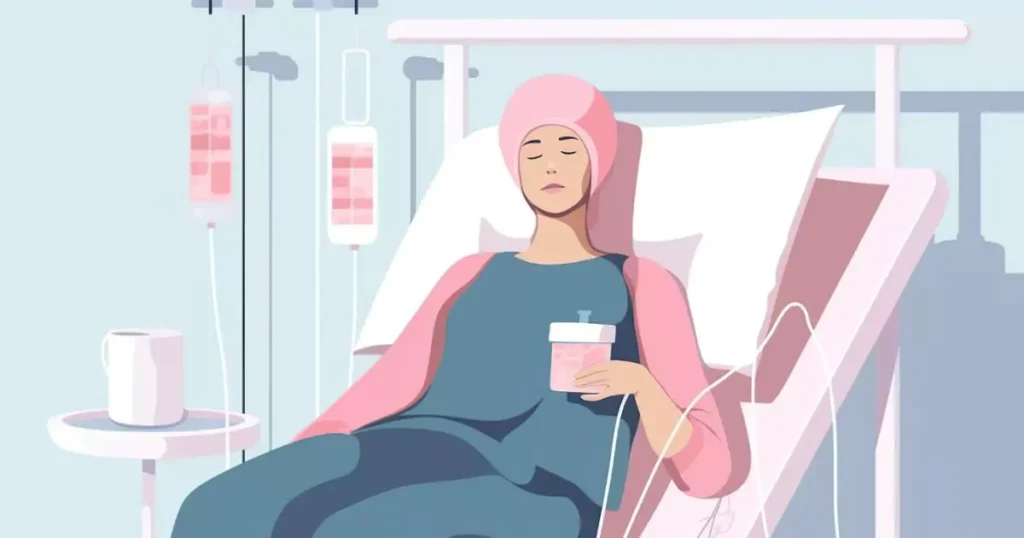
Explore common health issues that can cause unexplained weight gain, including hypothyroidism, sleep problems, PCOS, and more. Learn about precautions and treatments to manage these conditions effectively.
Gaining weight without a clear reason can be confusing and frustrating, especially if you’re living a healthy life. This unexpected weight gain might be due to different health problems that need a doctor’s care for figuring out and treating them. Knowing what might be causing it helps you get the right help and make smart choices for your health. Let’s look at some health issues that might cause you to gain weight without knowing why.

1. Hypothyroidism
Hypothyroidism happens when your thyroid gland doesn’t make enough thyroid hormone. This hormone is really important for controlling how fast your body uses energy, and not having enough can slow down your metabolism. This can make it hard to keep a healthy weight. Other signs of this problem are feeling tired, being cold, having trouble going to the bathroom, and weak muscles. Taking medicine can help control your thyroid hormone levels, but eating well and living a healthy life is just as important to manage your weight.
Precautions: Regularly monitor thyroid levels, eat a balanced diet, avoid foods that can interfere with thyroid function (like soy and certain vegetables), and reduce stress.
Treatment: Treatment typically involves thyroid hormone replacement therapy. Levothyroxine is a common medication prescribed to manage hormone levels.
2. Sleep Problems
How much and how well you sleep can really affect your weight. Not sleeping enough can mess up the balance of hormones in your body that control hunger. Ghrelin is a hormone that makes you feel hungry, and it goes up when you don’t get enough sleep, making you want to eat more. Leptin is another hormone that tells you when you’re full, and not sleeping enough makes its levels go down, so you don’t feel full and eat more. This can lead to gaining weight.
Precautions: Establish a regular sleep schedule, create a comfortable sleep environment, limit caffeine and screen time before bed, and manage stress.
Treatment: Treatment may include practicing good sleep hygiene, using relaxation techniques, and, if necessary, seeking medical advice for sleep aids or therapy for underlying issues like sleep apnea.
3. Polycystic Ovary Syndrome (PCOS)
PCOS is a condition that affects women’s hormones, causing things like irregular periods, too much hair growth, and sometimes problems with getting pregnant. Women with PCOS might gain weight or find it hard to lose weight. Even though there’s no specific treatment for PCOS, changing your diet and exercising can help with weight and other symptoms.
Precautions: Maintain a healthy diet, engage in regular exercise, monitor menstrual cycles, and watch for symptoms like excessive hair growth.
Treatment: Treatment may include lifestyle changes, weight management, birth control pills to regulate menstrual cycles, and medications to manage symptoms like hair growth and acne.
4. Type 2 Diabetes
Type 2 diabetes is often linked to being overweight, but it can also make you gain more weight. This type of diabetes happens when your body doesn’t use insulin well. Gaining weight can start a cycle, especially if you need treatments like insulin shots or certain medicines that make you hungrier and change how your body handles energy.
Precautions: Monitor blood sugar levels regularly, maintain a healthy diet, exercise regularly, and monitor for symptoms like increased thirst or frequent urination.
Treatment: Treatment includes lifestyle changes, blood sugar monitoring, diabetes medications or insulin therapy, and regular medical check-ups.
5. Aging
As you get older, your body changes, like losing muscle. This can slow down your metabolism, which might make you gain weight. But this doesn’t have to happen. Staying active and working to keep your muscles through exercise and eating right can help stop this weight gain.
Precautions: Engage in regular physical activity, maintain a balanced diet, monitor health regularly, and manage chronic conditions effectively.
Treatment: While aging is natural, staying active and eating a healthy diet can help manage weight. Strength training can be particularly beneficial to counteract muscle loss.
5. Menopause
Menopause brings big hormone changes, like less estrogen, which can make you gain weight, especially around your stomach. Along with losing muscle as you get older, these hormone changes can make it harder to control your weight during and after menopause. But, if you eat healthily and exercise more, you can avoid gaining weight at this time in your life.
Precautions: Regular exercise, especially weight-bearing and strength training exercises, a balanced diet, and stress management.
Treatment: Treatment may include hormone replacement therapy, lifestyle changes, and alternative therapies to manage symptoms.
7. Cushing’s Syndrome
Cushing’s syndrome is a rare problem caused by having too much cortisol, a hormone. This can happen because of a tumor on your adrenal gland or from taking steroid medicine for a long time. It leads to weight gain, especially around your middle and face, but your arms and legs might stay thin. Cushing’s syndrome needs a doctor’s care for the right treatment.
Precautions: Be aware of symptoms like rapid weight gain and high blood pressure, and seek medical advice if these occur.
Treatment: Treatment depends on the cause but may include surgery, radiation, chemotherapy, or medications to control cortisol production.
8. Breast Cancer Treatment
Gaining weight is a common side effect for people getting treated for breast cancer. Many people going through this treatment gain weight for different reasons, like the effects of the treatment itself or changes in how they live because of the sickness.
Precautions: Monitor dietary intake, stay as active as possible, and communicate with healthcare providers about weight concerns.
Treatment: Management includes healthy eating, regular exercise, and working with a dietitian. Addressing weight gain should be part of the overall cancer treatment plan.
9. Depression
Depression can make you gain weight because it affects how you take care of yourself and can change your hormones. People with depression might eat more or less and not be as active. Some medicines for depression can also make you gain weight.
Precautions: Seek support, practice stress management, and monitor changes in appetite or activity level.
Treatment: Treatment may include counseling, antidepressant medication, lifestyle changes, and support groups.
10. Sleep Apnea
Sleep apnea, where your breathing stops and starts while you sleep, not only makes your sleep bad but also affects how your body controls weight. It can change how you respond to exercise and the levels of leptin, a hormone that helps control weight.
Precautions: Maintain a healthy weight, avoid alcohol before bedtime, and sleep on your side.
Treatment: Treatment options include using a CPAP machine, lifestyle changes, and, in some cases, surgery.
11. Chronic Fatigue
Feeling tired all the time might be a sign of thyroid problems, which can slow down your metabolism and make you gain weight. Problems with your thyroid need a doctor’s check to figure out and treat them.
Precautions: Pace activities, eat a balanced diet, and get adequate sleep.
Treatment: Treatment includes lifestyle adjustments, graded exercise therapy, and counseling to manage symptoms.
12. Arthritis
Arthritis can make your joints hurt, which might make it hard to stay active. Being less active can lead to gaining weight.
Precautions: Stay active within limits, maintain a healthy weight, and use joint-friendly activities.
Treatment: Treatment includes physical therapy, pain management, and sometimes surgery, depending on the arthritis type.
Conclusion
These are just some of the health issues that might cause you to gain weight without knowing why. But there are other medical problems and lifestyle things that can do it too. If you’re gaining weight and don’t know why, it’s really important to talk to a doctor. Understanding what’s causing it is the first step to managing it and keeping a healthy weight.

























































































































